Generation Z, those born in the mid-1990s to 2000s, the wave of individuals notorious for the “participation award”, political correctness, and the push for ubiquitous acceptance, have something new at hand. We are the emblem of all types of equality: gender, marriage, racial–the list continues. We are known for the radical leaps we take to make all people feel accepted. Marriage, racial, and gender equality have shifted the world into the accepting environment it is meant to be. These necessary, vital movements are things I am proud to have lived through and taken part in, but, as society rightfully basked in the triumphs of these movements, we ignored the important problems that were formed among the young members of generation Z in the process. In my opinion, our generation has forgotten the beauty of differences and the value of recognizing them.
What brought me to this conclusion was something simple, the annual senior superlatives. Specifically, the change in the wording, amount, and structure of the superlatives from 2009 to 2016. We have been so caught up in seeing one another in a similar, equal light, that we forgot the beautiful differences that we’ve left in the darkness that are–when we are old and mature enough to handle them–wonderful to celebrate.
After my classmates and I unlocked our iPhones to read the newly announced senior superlatives, we flipped through a 2008-09 LFHS yearbook and subsequently compared our superlative awards to theirs. Boy, were they different. We couldn’t help but inquire how much things have changed and, in turn, ponder why? The people were pretty much the same, with the exception of a few evolved and discontinued trends, but the awards themselves have taken a whole new stance. “Best Looking, Most Involved, Biggest Gossip, Best Eyes, Best Smile, Best Hair, Best Future Parents, Most Driven” are just a few of the superlatives featured in the 2009 that were conveniently absent from this year’s list.
My parents refer to us as, “a sheltered generation,” trapped into the screen of our personal electronic devices. After hearing this, I immediately began to strum up an argument to defend my generation, but after deeper thought found myself realizing that maybe we are, in fact, sheltered. Some of this sheltering is necessary and needed, I suppose, but it does have its drawbacks. Think about it: we have all been given at least one participation ribbon, medal, or trophy in our lifetime. I have a box dedicated to them. It is great to value effort and participation, but the award for simply being involved partially diminishes the content of the event itself. The original point of effort and participation is that you did both without the automatic validation of an award and, in turn, learned the valuable benefits of winning and losing. You put in effort because you cared enough to really try; you put in effort to reach the goal of potentially winning, not to be rewarded simply for signing up in an attempt to shield young people from negative feelings.
Our superlatives mirror several concerns that our generation has rolled itself in to. We are so concerned with offending and excluding others that we have changed the nature of the exercise itself. Superlatives were originally made to recognize characteristics in people, both funny and serious, that are rooted in truth and recognized by their peers. Essentially, senior superlatives validated what we already knew. The two superlatives in the 2008-09 yearbook that stuck out to me the most were “Biggest Gossip” and “Best Looking.” These superlatives would never fly today. They would be viewed as inappropriate, offensive, rude, insensitive, and would prompt emails from parents and students alike.
Still, in 2009 those superlatives were never aimed to be looked at in a negative light. Rather, they were made to recognize the people that fit the category based on their classmates’ opinion after 12 years of school together. They were voted because that’s who they were recognized as, and most likely recognized that in themselves already. Just because only two people were voted best looking doesn’t mean that they were the only beautiful people in the school. We often forget that just because one person is recognized in the yearbook for a specific skill or characteristic with the word “best” next to their name, it doesn’t mean we ourselves aren’t capable or have those same traits and skills to a nearly equal degree. Rarely, if ever, were the senior superlatives a “reality check” or a “wake-up call.” The exclusion of the word “best” perhaps denotes that we are afraid of solidifying anyone as “the best” at anything. We already don’t have a class rank like most other schools and now we exclude the word “best” from senior superlatives?
Our superlatives nowadays have the same connotation but, because our generational sensitivity has shifted the way we articulate things, they are now worded in a different way. For example, some could argue that “Fresh off the Runway” is the same thing as “Best Dressed” because it applies to the person that fits the image of a model, known for their keen sense of style. However, since the word “best” was conveniently replaced, it allows the connotation of the award to shift to the idea that a lot of people have good style, but these two people look like they came off the runway (not to be confused with being the best). Don’t get me wrong, I believe it is good to want to avoid hurting other peoples’ feelings, but there is a point where you are sacrificing the point of something in order to please everyone. And let’s be honest, you will never be able to please every person–especially in high school. It also defeats the purpose of the superlative. If we continue to award so many uber-specific awards, there will be a point where almost everyone is winning something, making the superlative high school’s version of the participation award, something that is universally detracted by our generation. To make this clearer, “Most Likely to be UN Ambassador” is always going to go to someone in Model UN. That is well and good. Still, awarding them something more original, such as “most diplomatic” or “most political” alludes to something more than a club that they already know they are involved in.
Lastly, the most staple superlative was removed this year was the classic “Most Lake Foresty.” The award was often given to the preppiest person who perpetuated the notorious Lake Forest stereotype the most. It was something original and unique to LFHS. Libertyville never had a “Most Libertyville-y” and Stevenson never had a most “Stevenson-like.” The removal of this award shows that we overthink the meaning and intention of these superlatives. Nothing about the “Most Lake Foresty” award was offensive. In fact, it was embraced by the winner of the stereotyped Lilly Pulitzer, Vineyard Vine-covered student that attended LFHS and often took the picture on top of a Jeep Wrangler. They got the joke. They laughed with us. We didn’t laugh at them. The students that won this award in the past loved receiving it and they didn’t see anything wrong with their preppy aura–they knew it already. Our often over-sensitive outlook has blinded us from the true meaning of these awards and has only allowed us to see how someone might take it rather than what the were truly intended to mean.

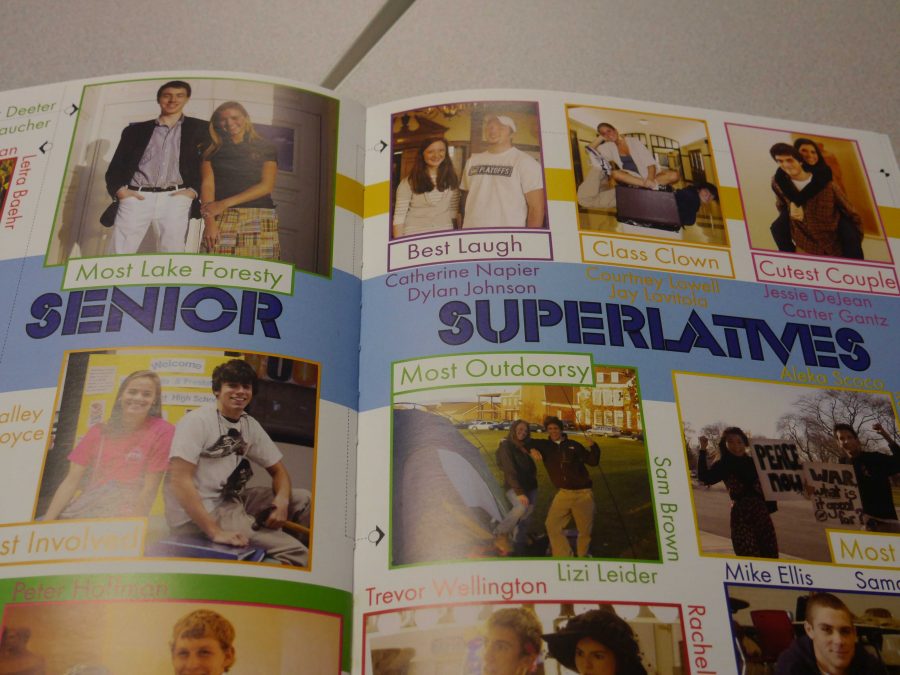






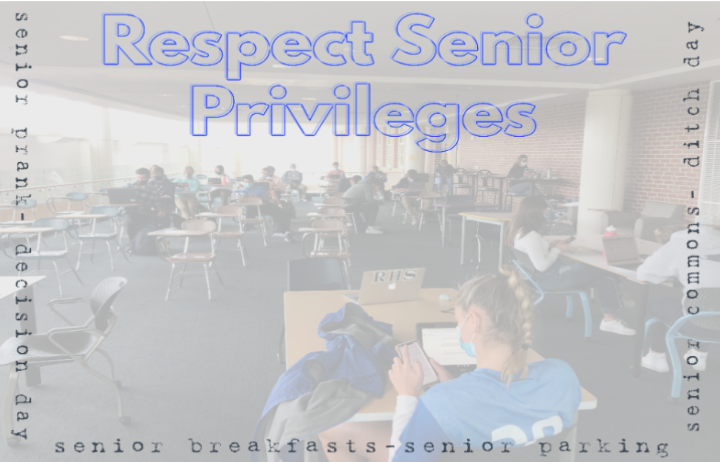
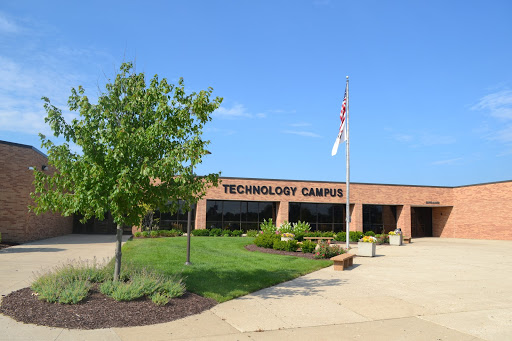

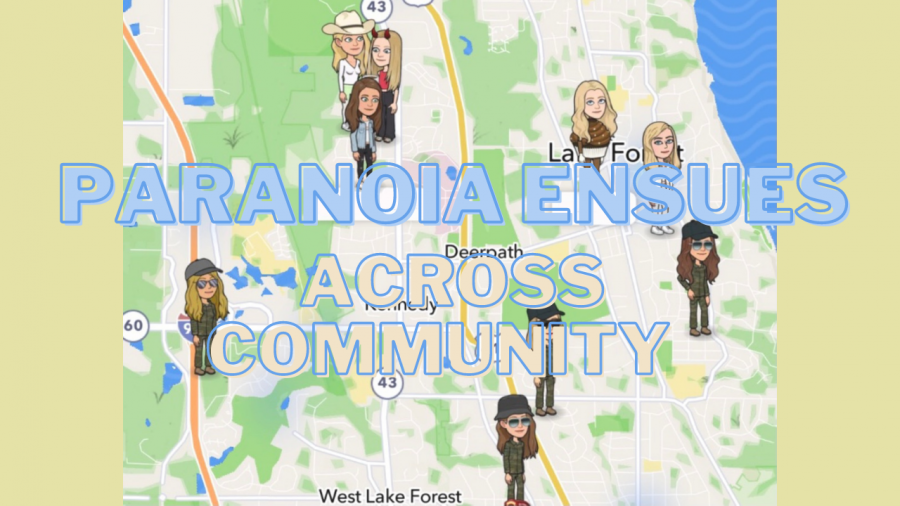


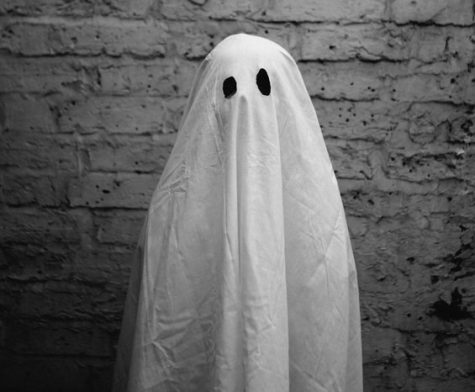
John Doe • Dec 8, 2016 at 5:15 pm
PC culture sucks.